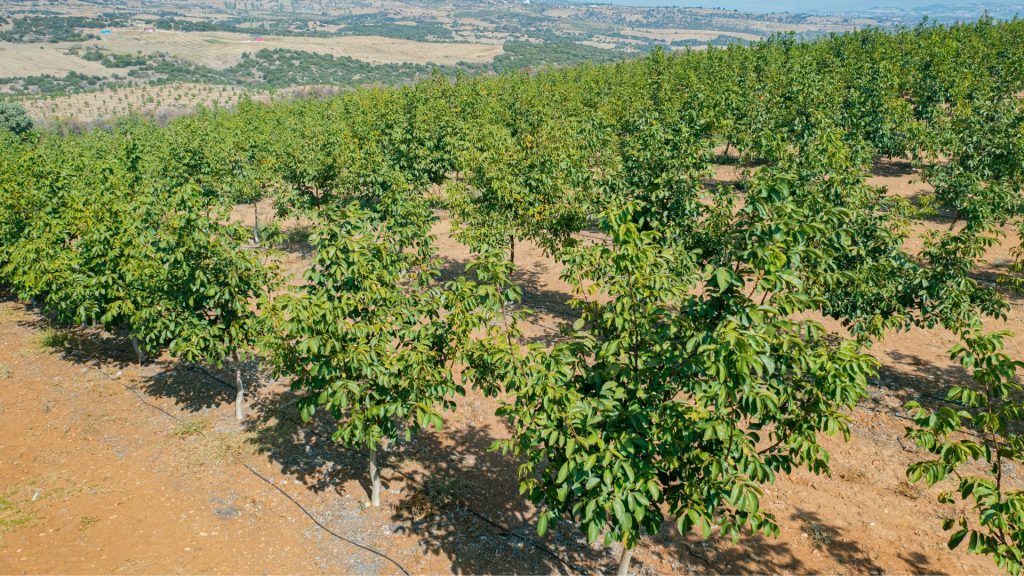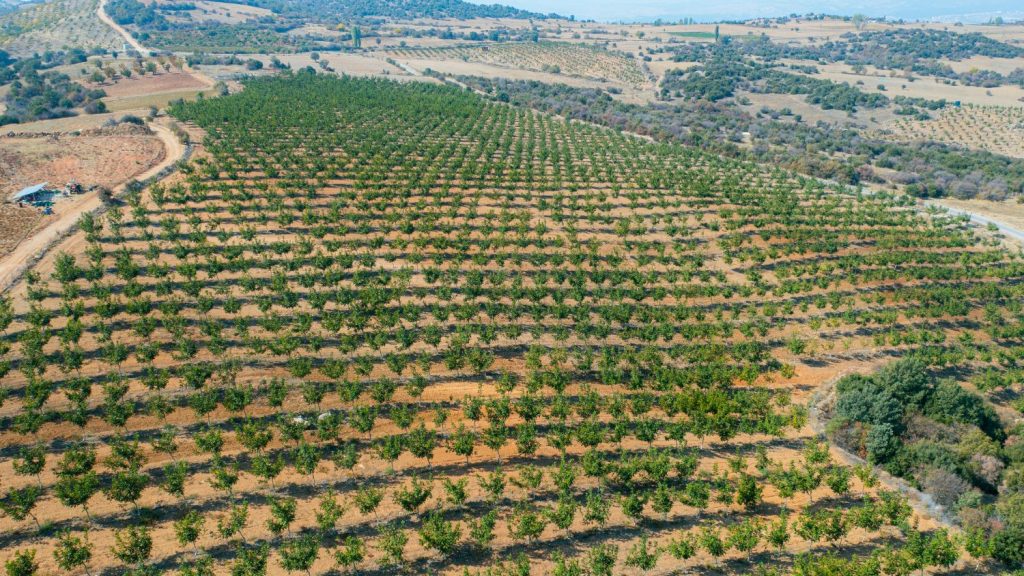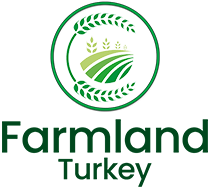Agriculture in Turkey: A Rich Harvest of Global Potential
With its diverse climate and fertile lands, Turkey has been a leader in agricultural resilience for millennia. Today, Turkey’s agriculture, a living testament to its landscapes, offers a rich tapestry of flavors and scents that vividly reflect its cultural and geographical richness. From the fertile plains of Anatolia to the welcoming Mediterranean coast, Turkey’s agricultural sector stands as a resilient pillar of its economy and heritage. Let’s explore Turkey’s history, features, and current agricultural standing, a fascinating journey through time and terrain.
History of Agriculture in Turkey
The history of farming in Turkey is a testament to the resilience and ingenuity of its people, dating back to ancient times, rooted in the Neolithic period. The fertile lands of Anatolia supported the cultivation of wheat, barley, and legumes, with early settlers developing irrigation techniques like the qanat system for arid regions. Agriculture played a pivotal role in the rise of civilization in Turkey. The Hittites, skilled farmers, cultivated crops and domesticated animals like sheep and goats, laying the foundation for a rich agricultural heritage that continues to thrive today.
During the Roman and Byzantine periods, agriculture thrived by introducing new crops, such as olives and grapes, along with improved irrigation techniques. The Byzantines focused on vineyards and olive groves, constructing granaries to store surplus crops.
Over 600 years, the Ottoman Empire significantly contributed to Turkish agriculture, introducing crops like coffee and citrus fruits and establishing large agricultural estates known as “çiftliks.” The empire also built aqueducts and irrigation systems to boost productivity.
Today, Turkey remains a major agricultural producer, known for numerous crops, including wheat, barley, cotton, and nuts. It’s also a leading producer of fruits and vegetables like citrus fruits, tomatoes, and peppers.

Agricultural Products in Turkey
Turkey is renowned for producing various agricultural products, many of which are staples in Turkish cuisine and sought after around the world. Here are some of the primary agricultural produce:
Walnuts
Turkey is one of the leading producers of walnuts, particularly in Akhisar and Manisa. Turkish walnuts are prized for their rich flavor and are used in various dishes and desserts.
Olive Oil
Turkey’s Aegean and Mediterranean coasts are famous for their olive groves, which produce high-quality olive oil. Turkish olive oil is known for its fruity flavor and is a primary ingredient in Turkish cuisine.
Almonds
Turkey yields a significant amount of almonds, most from the eastern region. Turkish almonds are known for their sweet taste and are common ingredients in desserts and confectionery.
Lavender
The Isparta region in southern Turkey is known for its lavender production. Turkish lavender is prized for its high quality and is used in producing essential oils, perfumes, and cosmetics.
Citrus Fruits
Turkey is one of the leading cultivators of citrus fruits, including oranges, lemons, and tangerines. The Mediterranean and Aegean regions are mainly known for their citrus orchards.
Grains
Turkey produces a variety of grains, including wheat, barley, and corn. These grains form the basis of many traditional Turkish dishes, such as bread, bulgur, and pasta.
Turkish Agricultural Sector
Turkey boasts the second-largest agricultural economy in Europe and the ninth-largest globally. Among OECD countries, it ranks second in agricultural economy size. Additionally, Turkey is the largest flour exporter globally. Turkey’s agricultural sector is robust, with 23.2 million hectares of agricultural land, including 5.1 million hectares of arable land. The country’s agricultural exports amount to approximately $17.7 billion, while imports total around $12.7 billion, resulting in a total agricultural trade volume of roughly $30.5 billion. Turkey is home to 3,076 million agricultural enterprises and employs three million people in the agriculture industry. The agricultural GDP is around $43.2 billion, showcasing the sector’s enormous contribution to the national economy.
The Role of the Turkish Ministry of Agriculture and Forestry
The Turkish Ministry of Agriculture and Forestry is vital in developing and regulating the Turkish agricultural sector. The ministry is responsible for formulating agricultural policies, promoting sustainable farming practices, and ensuring the welfare of farmers.
One of the ministry’s key initiatives is promoting organic farming practices. Turkey has a rich tradition of organic farming, and the ministry is working to expand the production of organic agricultural products for domestic consumption and export.
Another vital role of the ministry is developing irrigation infrastructure. Turkey is prone to droughts, particularly in the eastern regions, and the ministry is working to improve irrigation systems to ensure the sustainability of agricultural production.

Invest in Agriculture in Turkey
Farmland Turkey provides an exclusive investment opportunity by selling agricultural land in Turkey. Our organization excels in agricultural real estate consulting, with extensive farming, harvesting, and product marketing knowledge. Each property acquisition includes certified walnut trees and freehold title papers. Our all-inclusive package incorporates water supply, irrigation systems, solar panels, equipment, machines, and power connections. We cultivate walnuts for our investing partners, who benefit from the annual sale of the walnuts plus long-term farmland appreciation. Our skilled team manages all process elements from planting to harvest, delivering a straightforward investment experience from beginning to end.
Take a Journey Through the Fields with Farmland Turkey
Turkey’s agricultural prowess is a testament to its people’s resilience and ingenuity and reflects its cultural and geographical diversity. From the fertile plains of Anatolia to the sunny Mediterranean coast, Turkish farmers produce a remarkable range of agricultural products prized for their quality and flavor sold on the global market. Investing in agriculture offers significant potential for financial returns and contributes to positive socio-economic impact. Investors can easily navigate the agricultural sector’s complexities by partnering with us. Contact the knowledgeable team at Farmland Turkey now to embark on an agriculture investment journey in Turkey.
